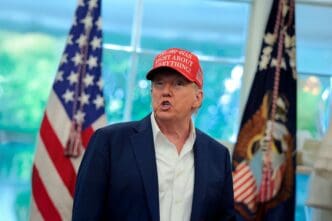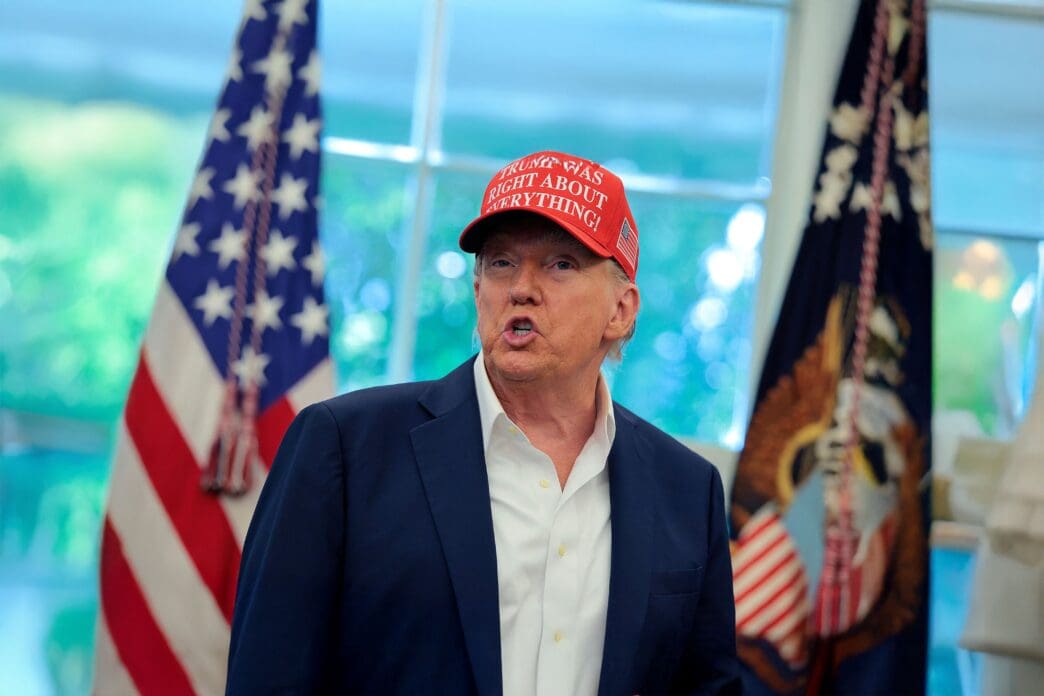Executive Summary
- President Trump announced his intention to resume U.S. nuclear weapons testing, citing alleged testing programs by other nations, a move that has sparked confusion and concern.
- Nuclear experts widely dispute Trump’s claims, stating that other nations are not conducting nuclear explosive tests and that the U.S. does not hold the world’s most nuclear weapons.
- Analysts warn that resuming U.S. nuclear testing would present significant diplomatic and technical challenges, yield little useful information, and could inadvertently encourage other nations to accelerate their nuclear programs.
The Story So Far
- Donald Trump’s announcement to resume U.S. nuclear weapons testing follows decades of the U.S. and most nuclear-capable nations voluntarily abstaining from explosive tests, with the last American test occurring in 1992. His statement, which cites testing programs by other nations, particularly recent Russian missile and torpedo developments, is disputed by experts who clarify these are not explosive nuclear tests. This move reflects a broader return to Cold War arms race dynamics, where major powers are significantly investing in new nuclear delivery platforms, with Trump potentially seeking to pressure Russia and China regarding their nuclear aspirations.
Why This Matters
- President Trump’s announcement to resume U.S. nuclear weapons testing, despite being based on disputed claims and causing confusion among experts, carries significant strategic and diplomatic risks, potentially destabilizing international arms control agreements, reigniting an arms race by providing an opening for other nations to accelerate their own nuclear programs, and injecting further instability into an already tense global environment.
Who Thinks What?
- President Donald Trump announced his intention to resume U.S. nuclear weapons testing, citing testing programs by other nations and stating a goal to pressure Russia and China towards denuclearization.
- Nuclear experts and international observers, including Matthew Bunn and Navy Vice Adm. Richard Correll, expressed confusion and concern, disputing Trump’s claims that other nations are conducting explosive nuclear tests and arguing that resuming U.S. testing would be strategically senseless, technically challenging, and could destabilize global arms control.
President Donald Trump has announced his intention to resume U.S. nuclear weapons testing, citing testing programs by other nations, a move that has prompted confusion and concern among nuclear experts and international observers. The announcement, made on his Truth Social platform on October 31, 2025, follows recent statements from Russian President Vladimir Putin regarding Russian nuclear-powered torpedo and cruise missile tests.
Expert Confusion and Disputed Claims
According to CNN, nuclear watchdogs worldwide are questioning the meaning and implications of Trump’s pronouncement, particularly since the U.S. has not conducted an explosive nuclear weapons test in decades. Matthew Bunn, a nuclear weapons expert at Harvard University, stated that “every statement in that post is wrong.” Bunn clarified that the United States does not hold the world’s most nuclear weapons, nor are other states currently carrying out nuclear explosive tests. He also noted that the Department of Energy, not the “Department of War,” is responsible for nuclear testing.
Navy Vice Adm. Richard Correll, President Trump’s nominee to head the US Strategic Command, expressed similar uncertainty during a Senate Armed Service Committee hearing. Correll stated that neither China nor Russia has conducted a nuclear explosive test, adding, “so I’m not reading anything into it or reading anything out.” The Center for Arms Control and Non-Proliferation defines nuclear tests as “generally controlled explosions of nuclear devise,” a definition Russia’s recent missile and torpedo tests do not meet.
Jon Wolfsthal, who advised both President Joe Biden and President Barack Obama on nuclear matters, pointed out that while Russia, the United States, and China are investing billions in new nuclear delivery platforms like missiles, bombers, and submarines, these are not explosive tests. Wolfsthal observed that these investments reflect a return to Cold War arms race dynamics where nuclear weapons are deemed important by each side.
Historical Context and International Agreements
The U.S. last conducted an explosive nuclear test in 1992, Russia in 1990, and China in 1996. For decades, almost every nuclear-capable country has voluntarily agreed to avoid such tests. North Korea remains the only nation to have conducted nuclear blasts this century, a factor contributing to its international pariah status.
Challenges and Strategic Risks
Analysts warn that a resumption of nuclear weapons testing by the U.S. would entail deep and wide-ranging complications. Beyond the diplomatic risks, there are significant technical challenges. Federal studies suggest that safely staging such a test would likely require several years of preparation. Furthermore, experts believe such tests might yield little useful information, given that the U.S. already conducts extensive testing of nuclear weapons components, possessing what is widely considered an unmatched trove of nuclear knowledge.
Critics argue that if President Trump initiates a new era of testing, it could inadvertently provide an opening for other nations with nuclear ambitions to accelerate their own programs. Matthew Bunn suggested that “the country that would benefit the most would be China.” Former Democratic congressman John Tierney, now head of the Center for Arms Control and Non-Proliferation, echoed this sentiment, stating, “It makes no sense from a strategic point of view for the United States.”
Trump’s Stated Goals and Administration Silence
Some political analysts speculate that President Trump’s tough talk is an attempt to pressure Russia and China to reduce their nuclear aspirations, a notion he seems to support. “I’d like to see a denuclearization,” Trump said, adding, “We’re actually talking to Russia about that, and China would be added to that if we do something.”
As of now, neither the Defense Department nor the White House has offered a more complete explanation of the plan. Tierney expressed concern over the president’s “constantly shifting talk,” fearing that it could inject more instability into an already tense international environment.
Unanswered Questions
President Trump’s declaration to resume nuclear testing has ignited a debate among experts, highlighting the complexities of international arms control and the potential for significant diplomatic and strategic repercussions. The lack of detailed explanation from the administration leaves many questions unanswered regarding the feasibility and broader implications of such a policy shift.








